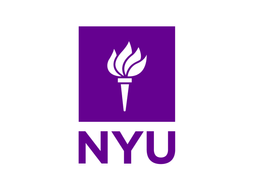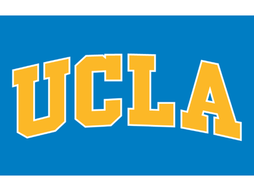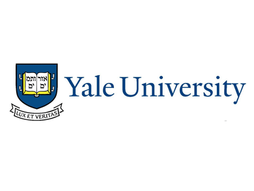National Science Foundation's High School Internship - 7 Reasons Why You Should Apply
As a high school student interested in pursuing research and a career in STEM fields, you might be thinking about building your knowledge base and skill set beyond the standard school curriculum. A summer internship program is a great way to develop your interests and create a network that can help you with your future education and career. Internships will give you valuable hands-on experience, allow you to engage in research work, and get a glimpse of how STEM careers play out in real-world professional settings. Adding an internship to your resume also lets college admission officers know that you’re a dedicated student who’s driven enough to seek opportunities to further your education and career. In this blog, we’ll cover the U.S. National Science Foundation (NSF) Internship Program, a solid place to start your STEM education.
What is the NSF Internship Program?
The National Science Foundation’s Internship Program, offered as part of its Pathways program, is an opportunity for high school students to gain professional experience in scientific research. During this internship, you will be exposed to relevant science and engineering policy, research, and education issues, and will contribute to a real-world project at the foundation. As an intern, you will get paid to explore the possibility of a federal career while completing your education. You will be assigned to a specific agency within the foundation – based on your interests, you might work in AI research, agricultural studies, biomedicine, space science, and more.
How is the program structured?
This program, aimed at recruiting the next generation of the federal workforce, allows students to find internships in a wide range of different fields. It provides students with paid opportunities to explore federal careers while completing their education. Agencies within the NSF may hire Interns on a temporary basis for up to one year, or for an indefinite period, to complete their educational requirements for graduation. Interns have the option of working part-time or full-time.
Interns who have been hired on indefinite appointments could potentially be offered a permanent position (or, in some limited circumstances, to a term position lasting 1-4 years). However, conversion is not guaranteed. To be eligible for conversion, there are a few specific criteria that you can look through here.
Costs & Stipends
There is no cost to attend the program. Students will be paid throughout their internship, but information on the exact amount is not available.
Dates
The exact dates for a particular internship may vary with the agency and the kind of appointment (part-time or full-time, temporary or indefinite).
Who is eligible?
Current students in an accredited high school, college, or professional, technical, vocational, trade school, and other qualifying educational institutions can apply.
7 Reasons to Apply to the NSF High School Internship Program
1. The program can get you started on a future federal career.
Interns on indefinite appointments with their agency may be offered a permanent position. This means that high school students can attempt to secure a job right out of college at a federal agency. This is a great opportunity to prepare yourself for your future career.
2. The program promotes professional development.
By working with NSF, you will learn what professional life is truly like, and gain insight to make informed decisions about your future. Even if you do not wish to extend your internship into a permanent position, you will still have worked on developing your professional skills. The program prepares you for a workplace setting at the highest level—a national agency. Students will develop valuable professional skills, such as research, critical thinking, problem-solving, and communication.
3. The program provides valuable networking opportunities.
As an intern at a national agency, you will get to connect with some of the country’s brightest minds. You’ll find yourself working under top professionals, experts, and mentors with connections all across the country—this network could be very valuable for future academic and career opportunities. You could also rely on this network when you’re seeking advice on a research project, applying to college, or seeking job opportunities. An NSF recommendation letter could also give you an edge when it comes to college or job applications!
4. The program exposes students to cutting-edge research.
At NSF, students will have the opportunity to work on projects at the forefront of scientific research, gaining insight into the latest developments in their field. The national agencies you will intern at will allow you access to all the latest technology, equipment, funding, and more. For example, on May 6, 2024, the White House celebrated two major AI Milestones: the launch of the National AI Research Resource Pilot and the unveiling of the “Supercharging Science” report, which leverages AI for groundbreaking scientific discoveries. These initiatives were all led by the National Science Foundation—this is something you could be a part of!
5. The program promotes a hands-on research experience.
By participating in this internship program, you will be asked to join a national agency, applying what you learn in real-world settings and solving real-world problems. Your research experience will be entirely hands-on, which means you will actively develop the fundamental skills needed to engage with the research process. This is a great way to dive head-first into a new and exciting research experience and prepare yourself for a future career in that field. Even if you come in with little research knowledge, there is no better way to learn than through hands-on experience.
6. The program is fully funded.
The program comes at no cost and in fact, offers a stipend. Often, programs that offer rigorous hands-on learning experiences come at a high cost. This program not only cuts all costs but also pays students to intern with them, making it much more accessible.
7. The program can enhance your college applications.
This program could be considered prestigious because of its association with national agencies. Including it in your profile, resume or college applications could help you stand apart – college admission officers seek students who demonstrate initiative and passion to learn beyond the standard school curriculum.
If you’re looking for a competitive mentored research program in subjects like data science, machine learning, political theory, biology, and chemistry, consider applying to Horizon’s Research Seminars and Labs!
This is a selective virtual research program that lets you engage in advanced research and develop a research paper on a subject of your choosing. Horizon has worked with 1000+ high school students so far and offers 600+ research specializations for you to choose from.
You can find the application link here
Bonus — the Lumiere Research Scholar Program
If you’d like to participate in a rigorous research program open to high schoolers, you may want to consider the Lumiere Research Scholar Program, a selective online high school program for students founded by researchers at Harvard and Oxford. Last year, we had over 4000 students apply for 500 spots in the program! You can find the application form here.
Also check out the Lumiere Research Inclusion Foundation, a non-profit research program for talented, low-income students. Last year, we had 150 students on full need-based financial aid!
Amelia is a current senior at Harvard College studying art history with a minor in economics. She’s enthusiastic about music, movies, and writing, and is excited to help Veritas AIs students as much as she can!
Image Source: NSF logo











